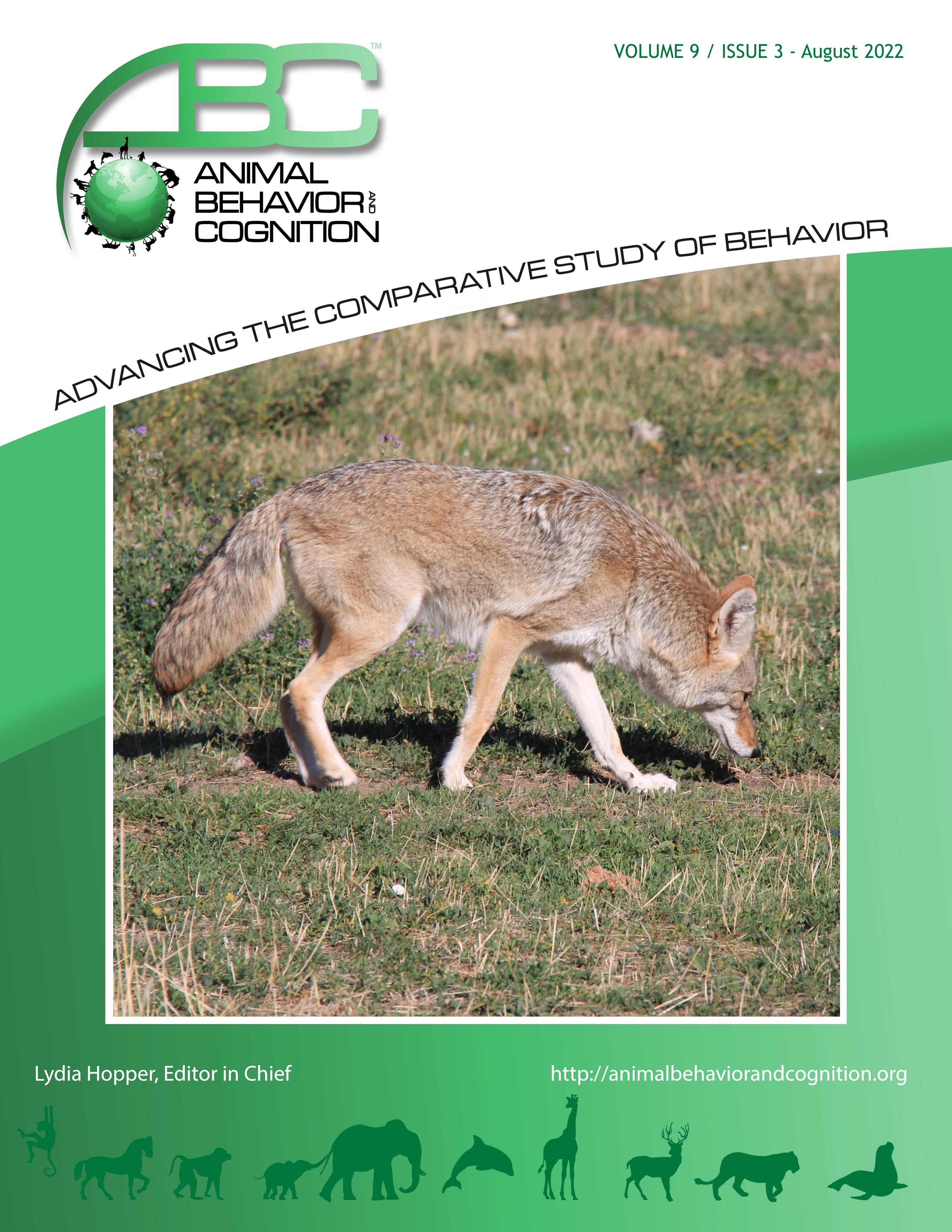Social Learning of Avoidance Behaviors: Trap Aversion in Captive Coyotes
Authors
Julie K. YoungJeffrey T. SchultzBuck JolleyNekol BasiliJohn Draper
Citation
Young, J. K., Schultz, J. T., Jolley, B., Basili, N., & Draper, J. (2022). Social learning of avoidance behaviors: Trap aversion in captive coyotes. Animal Behavior and Cognition, 9(3), 336-348. https://doi.org/10.26451/abc.09.03.06.2022
Abstract
Social learning can help animals gain knowledge rapidly and may enhance survival. In species that are subjected to capture in foothold traps and then lethally removed, such as the coyote (Canis latrans), learning to avoid traps is critical to survival. Here, we tested social learning of trap avoidance behavior in three experimental scenarios with captive coyotes. In the first experiment, coyotes observed an unfamiliar coyote get captured in a foothold trap (i.e., demonstrator) or did not observe a demonstrator and were therefore naïve to traps. The coyotes that observed a demonstrator showed similar latencies to approach the trap and be captured as coyotes without a demonstrator. In the second experiment, coyotes observed their trap-naïve mate get captured in a foothold trap while housed together. These coyotes had longer latencies to approach the trap and be captured than their mates. In the third experiment, demonstrator coyotes were housed separately in an enclosure adjacent to two other enclosures – one housing their mate and one housing an unfamiliar coyote. Here, unfamiliar coyotes had longer latencies to approach the trap and get captured than the mates of the demonstrator coyotes. These results suggest that coyotes have limited ability to socially learn avoidance behavior, with familiarity and proximity of the demonstrator influencing the ability of coyotes to use social learning. Thus, the different results emerging from this study may reflect behaviors related to territoriality and pair-bonds.
Keywords
Avoidance behavior, Canis latrans, Cognition, Wildlife management

